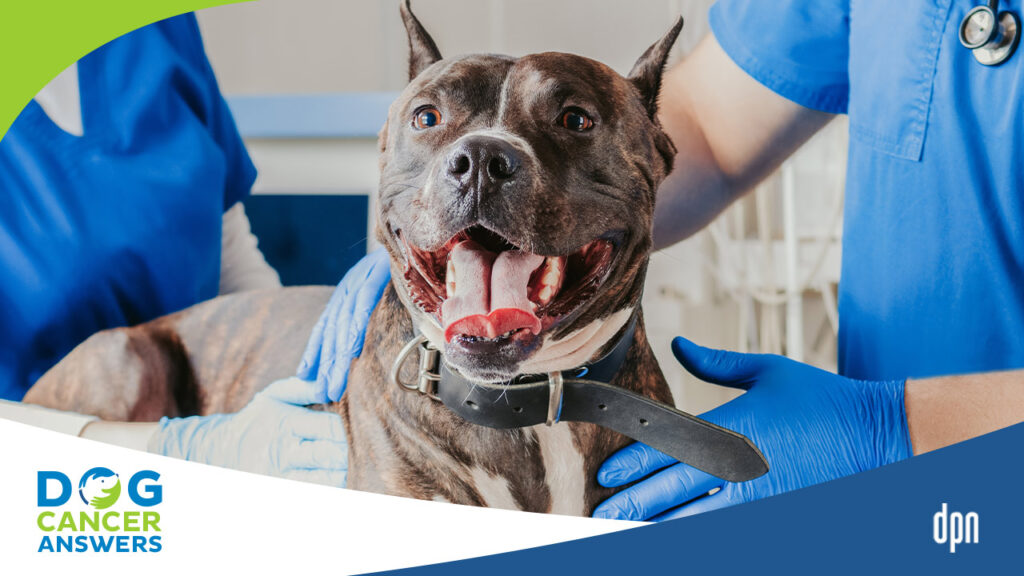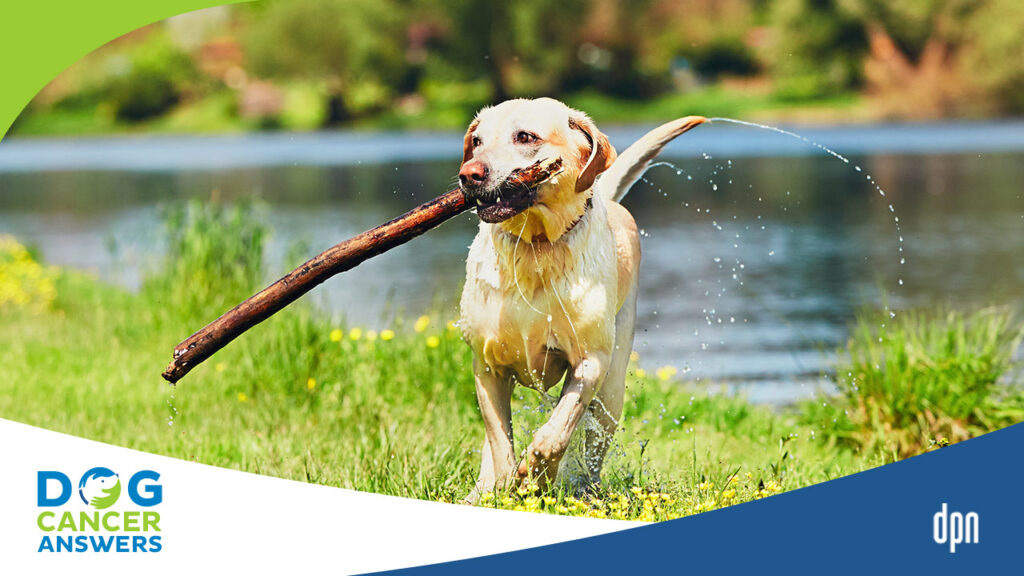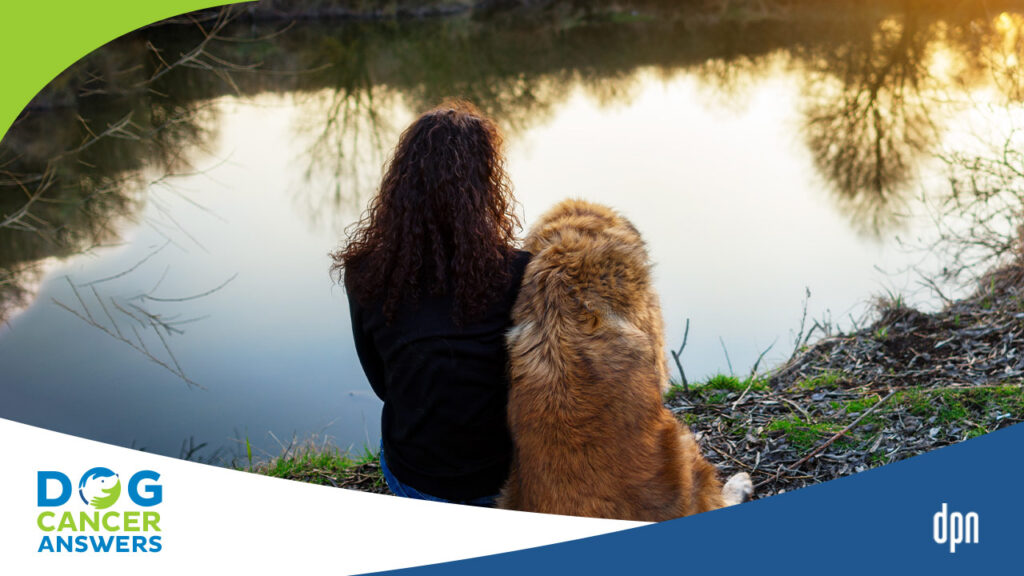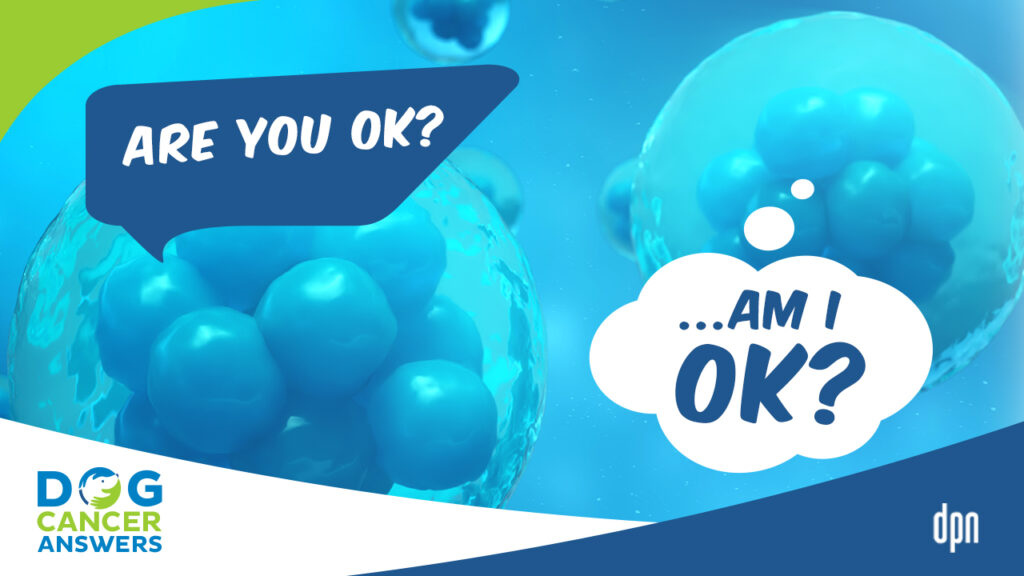James Jacobson: When you find out that your dog has cancer probably one of the first questions that people think is, “Why didn’t my vet catch this earlier? So, I’ll throw that out to you, Dr. Dressler, why didn’t a vet find out about cancer earlier?
Dr. Demian Dressler: This is an important question because this is something that has an emotional connection to the guardian. There can be a sense of frustration because we have the diagnosis of cancer and many times there’s a feeling, “Okay I have to blame somebody, there’s some anger some aggravation and its completely natural, however, just to soothe that feeling a little bit one has to look at biology and understand a couple of different things. The first thing is that a veterinary patient one of our loved pets does not do any self-exam, it can’t say I have a lump somewhere or something feels funny, they can’t actually communicate, the way they communicate is simply by how they act. Now, if we look back in nature many, many years ago, when dogs lived out in the wild primarily it was not good to act sick because you got gobbled out by predators or you lost your social position in the pact so they have a built-in mechanism to hide diseases called compensation because if they acted sick every single time, they actually were sick, they might something that might happen.
James Jacobson: So, sort of built-in into the dogs natural state of being is they sort of hide illnesses.
Dr. Demian Dressler: That’s exactly right!
James Jacobson: Dr. Ettinger, any thoughts? I’m sure you must hear this a lot when someone comes in and says, “Why didn’t my regular vet find this earlier?
Dr. Susan Ettinger: Yeah, and I think it’s really hard specially a lot of a cancers are internal and I don’t think there are any really good routine screening guidelines out there in veterinary medicine and as you can see they’re pretty controversial in human medicines as well with colonoscopies and mammography so I think it’s frustrating because no one knows how often we should be doing test X-rays and ultrasound and things like that, so sometimes we just find about this things and the masses can be quite big. So, can be really frustrating but I think it’s challenging to the vets they wanna find these tumors as soon as possible, it’s scary to the owners to think that it wasn’t found sooner, so everybody’s looking out for the dogs best interest it’s just its hard to find some of these tumors sometimes.
James Jacobson: Well, other related, so many Dr. Dressler in the book you talked about sort of doing exams of your dog, what are some things that people should examine on their dogs on a regular basis?
Dr. Demian Dressler: Well, there’s always a superficial exam which is simply a palpation of the skin. Looking for lumps and bumps, because honestly that’s going to be one of the easiest ways to find a cancer, because many of the cancers will occur in an area that you can actually feel with your fingertips. Whenever there was a lump or bumps because of the incidence of cancer, 1 in 3 dogs getting cancer give or take in potentially 1 in 2 dogs if there over 10, according to the National K-9 Cancer Foundation its very, very important to get it checked out. Then of course we always wanna look for general signs of illness for this internal cancer. These can be vomiting or diarrhea, even coughing, sneezing, weight loss, loss of energy level, loss of appetite that’s a good a general signs to look for overall health changes in thirst as well. So always tuning and paying attention to your dog and responding to a change by getting a veterinary check of this is always the best option.
James Jacobson: So, a little work on your part and a little understanding about the nature that dog just don’t like to show when they’re sick, helps answer the question, “how come my vet didn’t catch this earlier?” Dr. Dressler in Hawaii and Dr. Ettinger in New York, thank you so much today!
Dr. Demian Dressler & Dr. Susan Ettinger: Thank you!









